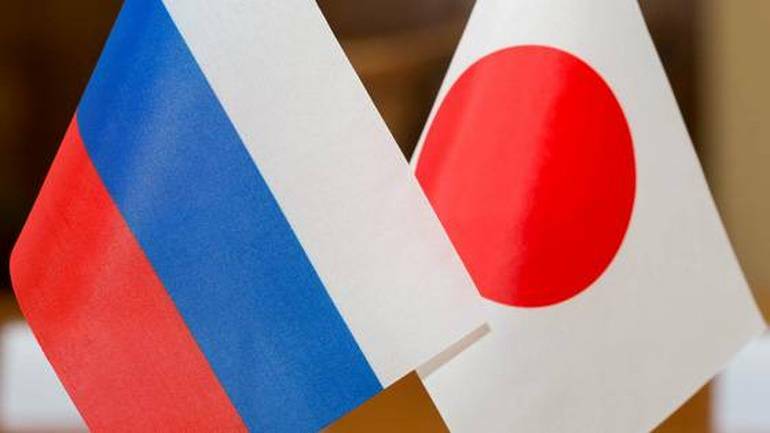Error get alias

Published: 05.07.2021
5 similarities between Russian and Japanese languages
Russian and Japanese… At first glance, they seem so different. Different alphabets, different vocabularies, different grammar systems. I fell in love with Japan and its culture in 2017 and I've been studying Japanese since. When the shock of three writing systems has subsided, I realized that there are also some similarities between Japanese and Russian languages. Let me explain what I mean.
I'd like to finish with some coincidences. For example, in Russian many last names end with "-ин", and in Japanese 人("nin", one of the possible readings) means "a person". It allowed Russian author Boris Akunin to play on his characters' names. His own pseudonym "Akunin" sounds perfectly natural in Russian, and in Japanese it means "an evil person". I also like the Japanese word 道路, pronounced "dooro" and meaning "road". As you maybe know, in Russian, "road" is "doroga". Even if these little things certainly have no common roots, they help me to create useful associations. Every new language makes learning the following one a bit easier.
Russian and Japanese… At first glance, they seem so different. Different alphabets, different vocabularies, different grammar systems. I fell in love with Japan and its culture in 2017 and I've been studying Japanese since. When the shock of three writing systems has subsided, I realized that there are also some similarities between Japanese and Russian languages. Let me explain what I mean.
- Both Russian and Japanese actively borrow words from other languages, mainly English. Once you master the Cyrillic alphabet, you can easily understand words like "микрофон", "супермаркет", "телевизор". In Japanese these words are shortened, but still recognizable: "maiku" (マイク, microphone), "suupaa" (スーパー , supermarket), "terebi" (テレビ , television). For borrowed words, Japanese uses a special writing system, called "katakana".
- Another common point between Russian and Japanese, is that their grammar is easier than it seems. Once the alphabet isn't a mystery, Russian and Japanese language learners can appreciate some grammar advantages. Russian only has five tenses, no special conditional or subjunctive forms, like in French or Spanish. Japanese doesn't have a special future form, not does the verb change according to gender or number. "I eat", "we eat", "they eat" will be just "taberu" (食べる).
- Both in Japanese and in Russian, pronouns are often omitted, but for completely different reasons. Russian verb changes with every person, so the ending gives us enough information about the speaker: "говорим" (мы), "сказала" (она). In Japanese, context is very important, we are supposed to guess who we are talking about. There are a few auxiliary (additional) verbs of politeness that help us to understand who the action comes from: プレゼントをくれた ("purezento o kureta", (she) gave me a present). Here, the verb くれる ("kureru") can only be used when speaking of a person different than ourselves.
- The idea of "aspect" is common both to Russian and Japanese. In Russian, "мы прочитали" means an accomplished action, when we read an article until the end. Whereas "мы читали" is an imperfective form meaning "we were reading". The same exists in Japanese: 読みました ("yomimashta", I read) and 読んでいました ("yondeimashta", I was reading).
- As a Russian, I found it quite easy to understand the famous Japanese particles: small words used to indicate how words relate to each other. In Russian, these functions are fulfilled by cases (accusative, genitive etc). When I learned that を ("o") is used to indicate the direct object, I instantly realized that I should use it in (almost) the same situations where I'd use the Accusative case in Russian. Please, compare these sentences both meaning "I bought a pen". ペン を 買いました。("pen o kaimashta"). Я купила ручку. In the first sentence, the direct object is indicated by the particle を, in Russian phrase it's expressed through the ending -у.
I'd like to finish with some coincidences. For example, in Russian many last names end with "-ин", and in Japanese 人("nin", one of the possible readings) means "a person". It allowed Russian author Boris Akunin to play on his characters' names. His own pseudonym "Akunin" sounds perfectly natural in Russian, and in Japanese it means "an evil person". I also like the Japanese word 道路, pronounced "dooro" and meaning "road". As you maybe know, in Russian, "road" is "doroga". Even if these little things certainly have no common roots, they help me to create useful associations. Every new language makes learning the following one a bit easier.

Tatiana Klimova
A 'Russian Podcast' author, the school's friend based in France learning Japanese and facing all the difficulties you may have. Loves exploring Russia, reading popular science and going to the gym three times a week.
Error get alias
Error get alias
Contact us
We will select a Russian language course for your goals
Categories
Our Courses
We use cookies to provide the best site experience.
Ok, don't show again








